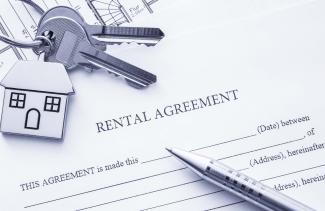
Understanding Your Rights as a Tenant

Understanding Your Rights as a Tenant
As a tenant, it’s crucial to be well-informed about your rights to ensure a fair and secure rental experience. Here’s a comprehensive guide that delves into various aspects of tenant rights, shedding light on key considerations.
Lease Agreement Basics
The foundation of your tenancy lies in the lease agreement. This legal document outlines the terms and conditions of your stay. It’s essential to thoroughly review and understand every detail before signing. Pay close attention to clauses regarding rent, maintenance responsibilities, and any limitations imposed by the landlord.
Rent Payment Rights
Your lease agreement will specify the due date and the amount of rent you’re obligated to pay. Tenant rights typically protect you from arbitrary rent increases during the lease term. If such changes are proposed, they often require sufficient notice, allowing you to plan accordingly. It’s crucial to understand your rights to avoid any potential disputes.
Repairs and Maintenance
One of the fundamental rights as a tenant is the right to a habitable living space. This implies that your landlord is responsible for ensuring the property is in good repair. In case of maintenance issues, promptly inform your landlord, preferably in writing, to document the request. If the landlord fails to address the problem, you may have legal recourse to demand repairs.
Privacy Rights
Tenants have a right to privacy within their rented space. Landlords should provide notice before entering the property for non-emergency reasons, allowing you sufficient time to prepare. Understanding these rights helps maintain a respectful and comfortable living environment.
Eviction Protections
Tenant rights extend to protection against unjust eviction. In most jurisdictions, landlords must have valid reasons, such as non-payment of rent or violation of lease terms, to initiate eviction proceedings. It’s essential to be aware of your rights in the event of an eviction notice and to seek legal advice if needed.
Security Deposit Guidelines
Landlords often require a security deposit to cover potential damages or unpaid rent. Tenant rights include a transparent process for handling and refunding this deposit. Make sure to document the property’s condition upon move-in and communicate any concerns to your landlord to avoid disputes during the deposit return process.
Discrimination Protections
Tenant rights also encompass protection against discrimination. Landlords cannot deny housing based on factors such as race, gender, religion, or disability. Familiarize yourself with anti-discrimination laws in your area to ensure you can recognize and address any potential violations.
Lease Renewal Terms
Understanding lease renewal terms is crucial for a smooth transition between rental periods. Some leases may include automatic renewal clauses, while others require explicit agreement from both parties. Be aware of the renewal process outlined in your lease to avoid any misunderstandings.
Resources for Tenant Advocacy
Empower yourself by exploring resources that advocate for tenant rights. Many organizations provide valuable information and support for tenants facing legal challenges or seeking advice. Familiarize yourself with these resources to access assistance when needed.
Conclusion
Being aware of your tenant rights is the first step towards establishing a secure and comfortable living arrangement. Remember, knowledge is power. If you ever find yourself in a situation where your rights are being violated, seek legal advice promptly. Stay informed, assert your rights, and contribute to fostering a healthy landlord-tenant relationship.
For more in-depth information on tenant rights, visit Tenant rights.



